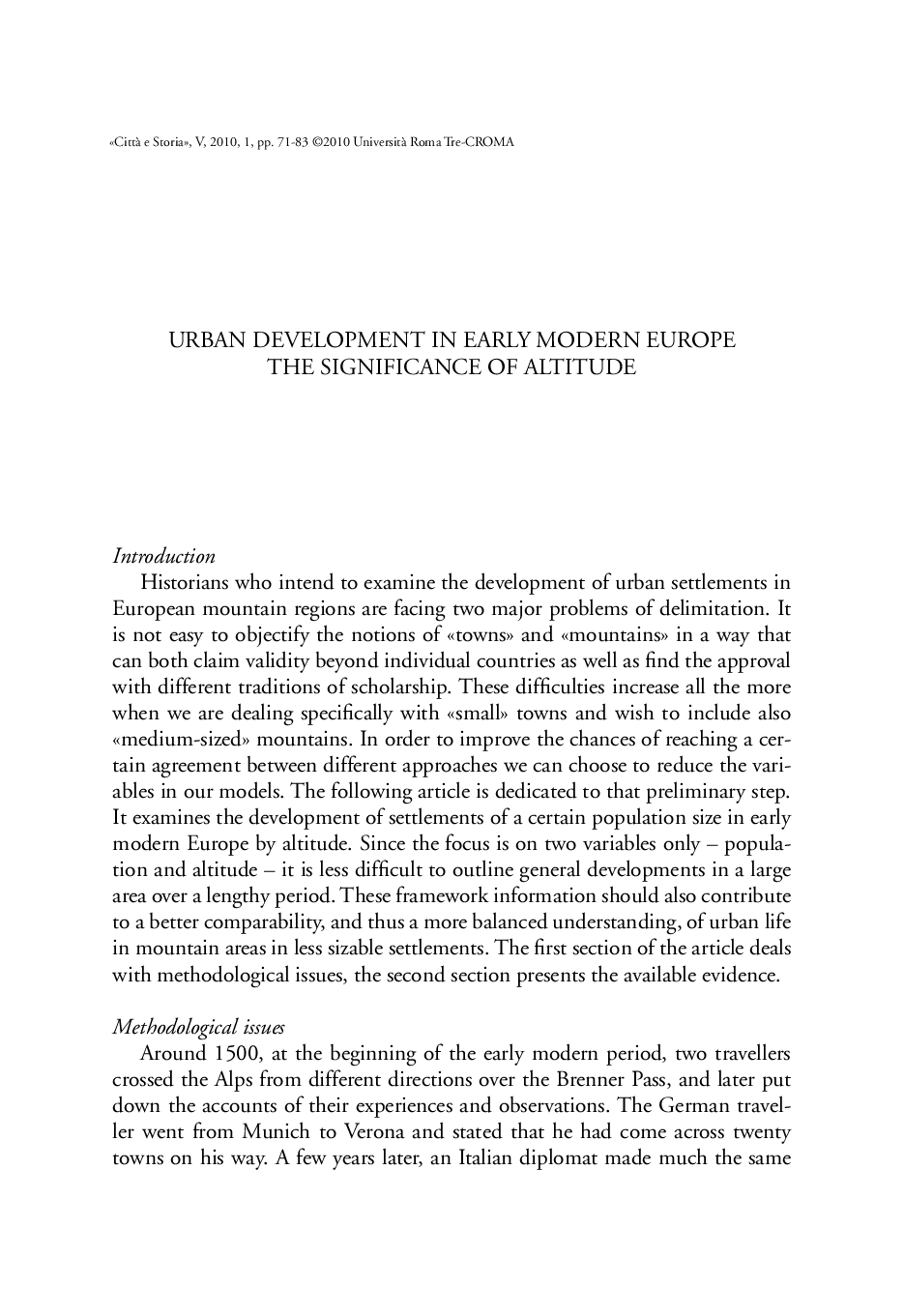Indice dei fascicoli
CITTÀ & STORIA » 2010/1 » Studi di storiografia urbana
ISSN 1828-6364
Mathieu Jon - Reto Furter
Urban Development in Early Modern Europe: the Significance of Altitude
pp.71-83, DOI 10.17426/75373
Articoli
Abstract: Although European urbanization has been debated for many years, the impact of altitude on urban development is still rather unknown. This paper is dedicated to a preliminary examination. It presents statistical evidence for the development of settlements of a certain population size in early modern Europe by altitude. The evidence suggests that, on average, and in the long run, the towns above 750 metres sea-level were growing at a slower speed than towns in other locations. The index number for the period 1600-1800 that we found for the mountain sample was the lowest one of all the samples presented in the paper (Europe West and East; North and South; coastal and interior). Several factors could explain these findings. In our view, particular attention has to be paid to statebuilding and politics on the one hand, and to environment, population and agriculture on the other hand.

Referenze
- download: n.d.
- Url: http://archivio.centroricercheroma.it/?contenuto=indice-dei-fascicoli&idarticolo=929
- DOI: 10.17426/75373
- citazione: J. Mathieu, F. Reto, Urban Development in Early Modern Europe: the Significance of Altitude, "Città & Storia", V/1, pp.71-83, DOI: 10.17426/75373

